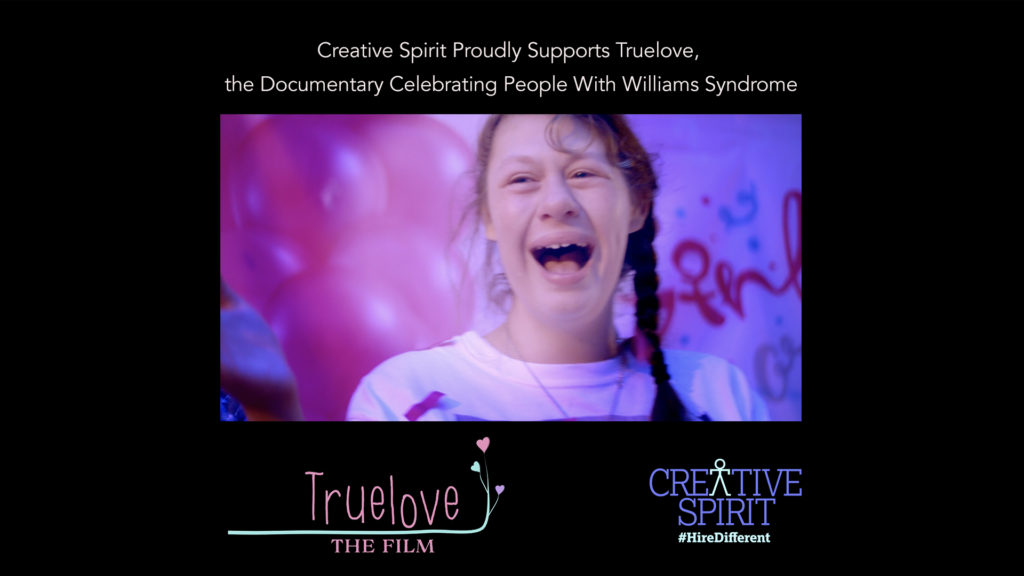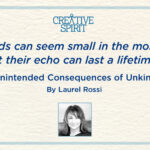By Menachem Rephun, Self-advocate + Creative Spirit Staff

Phil Viardo and Christopher Knight’s documentary Truelove: The Film begins with a simple yet powerful statement: “I just go through life one day at a time. I don’t know what’s going to happen, we’re not promised tomorrow. I’m just thankful to be able to wake up and breathe the next morning.” This message is delivered by Callie Truelove, the film’s central interviewee, who lives with the rare genetic condition Williams Syndrome. True to her surname, Callie is remarkably personable, embracing each moment and challenge in life with a spirit of genuine enthusiasm, authenticity, and indeed, love.
This upbeat and outgoing demeanor is often associated with Williams Syndrome, a condition that affects approximately 1 in 7,500 to 18,000 people worldwide. Unfortunately, public awareness of Williams Syndrome is limited, and as with other intellectual and developmental disabilities (IDDs), unemployment for people with WS continues to be a challenge. In an interview with WGN Radio, producer Christopher Knight (best known for his role as Peter Brady on The Brady Bunch), explained that raising awareness of Williams Syndrome was part of the incentive for creating the documentary, acknowledging that even he and Viardo were not knowledgeable about the condition prior to developing the film.
“The film is to bring awareness to the public of this thing called Williams Syndrome,” Knight said. “Callie Truelove is this very special teenager…who he became aware of through an associate, and something that she did online.” Viardo explained that Williams Syndrome was first brought to his attention several years ago by a development executive, who introduced him to the website “Special Books for Special Kids”, which spotlights individuals with a wide range of conditions.
“We felt like the story [of Cassie Truelove and her family] had to be told,” Viardo said, “and the best way to tell that story was through a feature film format that can reach people all over the world.”
Truelove’s exploration of Williams Syndrome is punctuated by Callie’s journey, by bus, to personally meet and interact with several other young adults with WS and their families, giving the film structure and driving home the importance of community and outreach for people with disabilities. Truelove is significant for its empathetic approach that emphasizes the individuality and strengths of people with Williams Syndrome; for being one of the relatively few documentaries exploring Williams Syndrome; and perhaps most importantly, for giving a voice to its participants, allowing them to share their thoughts and perspectives in their own words. By doing this, the film contributes towards breaking down stigma and drives home the vital message that people with Williams Syndrome, and by extension other disabilities, are more than just their diagnosis.
Some intriguing insights into the genetic basis of Williams Syndrome are shared by Dr. Jocelyn Krebs, an epigeneticist who found that deficiencies of the gene known as Williams Syndrome Transcription Factor (WSTF) can lead to significant physical and developmental differences. The film also touches on social issues, such as the lack of services for individuals with Williams Syndrome relative to other conditions, as the mother of 12-year-old Ariana Guzman points out.
“We can benefit from a lot more services,” Ariana’s mother states in the film. “All those services given to autism and Down Syndrome that are covered under insurance for them, that are not covered for us because we’re not on this list of covered disabilities. And I think if the disability community took the labels off and just made it “I have a disability’, put it all under the same umbrella, and let’s fight for the same thing.” Terry Monkaba, Executive Director of the Williams Syndrome Association and mother of a son with WS, noted the concern many parents of children with disabilities experience about ensuring long-term care and support.
“A parent typically cannot afford to pay for a child to be in a supported living environment without help, not for a lifetime,” Terry observes. “What do you do when suddenly you’re 80 and they’re 60? What’s going to happen to them when you’re not there?”
Notably, the film features Creative Spirit co-founder Laurel Rossi and her daughter Mia, who is diagnosed with Williams Syndrome.
“I started something called Creative Spirit,” Laurel explains, “and it’s really about having a roadmap and vision for kids with intellectual disabilities mostly, who are unemployed at 85%. What do you do everyday when you’re 22 years old and you have no place to go? It’s just been a fantastic journey when you talk to these individuals about their jobs and staying in their jobs, and knowing they can keep a job, they are beside themselves. It just lifts your heart.”
The message of the film is perhaps most poignantly captured by Mia herself.
“Being a kid that people can see is also a part of life,” she says. “I exist. I want people to know that.” Hopefully, Truelove, which is an official selection at the Maui, Catalina and Beverly Hills Film Festivals, will go a long way in making sure the world knows that people with disabilities and Williams Syndrome exist, and that the world is a better place because of them.






